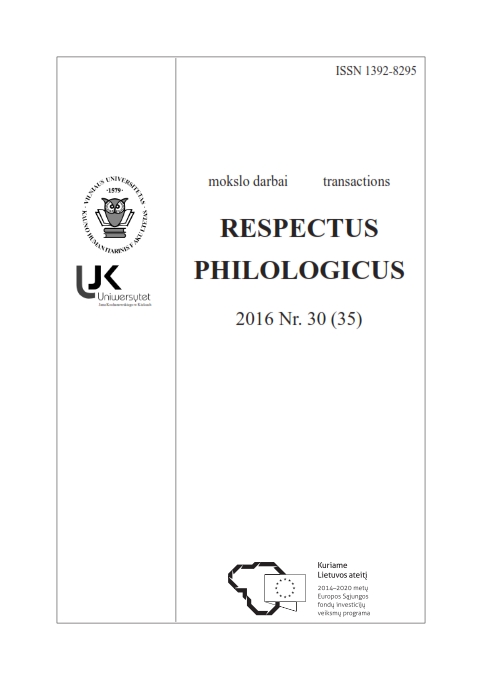OBOCZNOŚĆ TYPU AMBASADORZY // AMBASADOROWIE WE WSPÓŁCZESNEJ POLSZCZYŹNIE
ALTERNATIVE VARIANTS OF THE TYPE AMBASADORZY // AMBASADOROWIE IN THE CONTEMPORARY POLISH
Author(s): Marek RuszkowskiSubject(s): Theoretical Linguistics, Semantics, Comparative Linguistics, Western Slavic Languages
Published by: Vilniaus Universiteto Leidykla
Keywords: plural nominative; alternative variants of inflectional endings; language norm; frequency;
Summary/Abstract: Masculine personal nouns in plural nominative take on inflectional ending -owie, which is often alternative to the ending -y (more seldom -i and -e). Categorization of endings –owie // -y poses a lot of problems, as it is not influenced by morphological factors. 40 pairs of alternative forms of the type astrolodzy // astrologowie; profesorzy // profesorowie; zegarmistrze // zegarmistrzowie, excerpted from a linguistic guidebook from the early 1960s, were subject to analysis. They were verified in terms of norm and frequency. The first verification was based on determinations contained in the Polish Academy of Science Great Normative Dictionary of Polish / Wielki słownik poprawnej polszczyzny PWN/, while National Corpus of Polish was the basis of the second one. Comparison of a linguistic norm from half a century ago and the contemporary one shows that not all variants considered correct 50 years ago are acceptable today. A quantitative analysis proves that the law of linguistic economy works in general, meaning that the shorter form prevails in terms of frequency (the number of syllables is the measure of length). The choice of the longer form (with ending -owie) is presumably motivated by euphonic, semantic and stylistic factors.
Journal: Respectus Philologicus
- Issue Year: 2016
- Issue No: 30(35)
- Page Range: 84-92
- Page Count: 9
- Language: Polish

